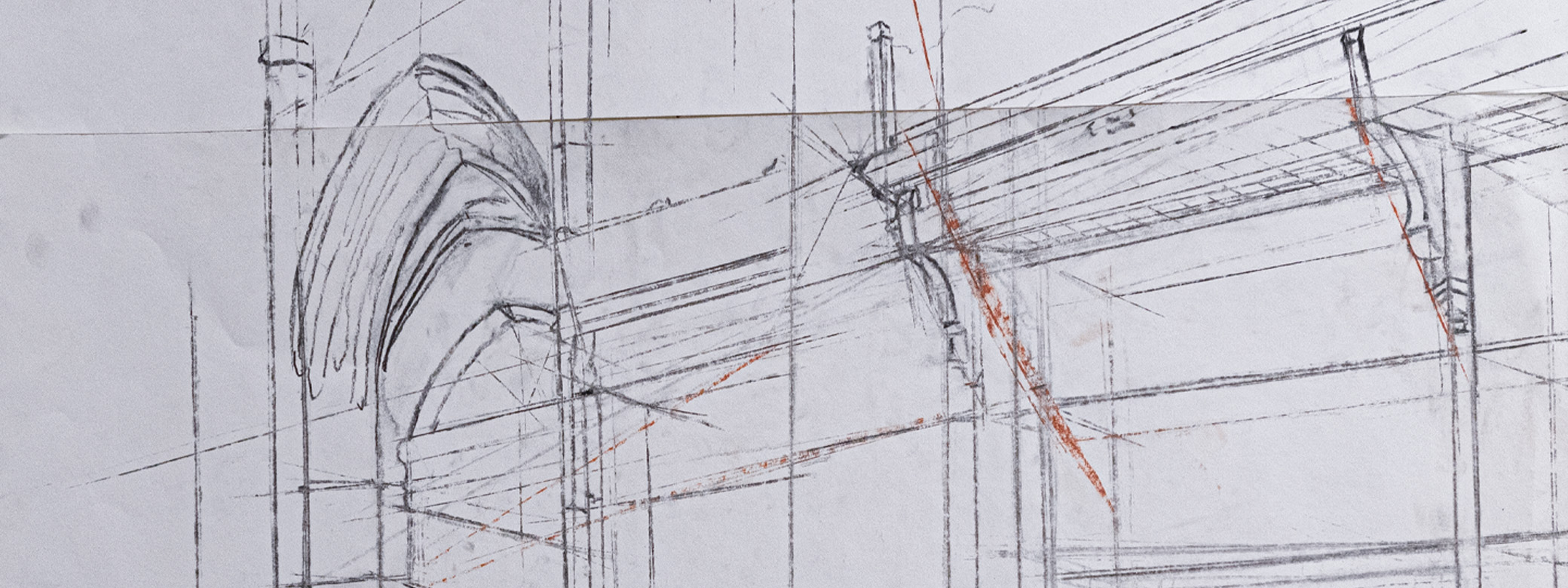Twice a year the University of Washington gives Royalty Research Fund (RRF) awards to faculty who have applied for project support. This program has existed since 1992, and an RRF Scholar option was added in 1994. RRF Scholars receive release time from teaching for one academic quarter in order to focus on their project. The RRF receives income from royalty and license fees generated through the UW’s technology transfer program. It is a competitive process to win an RRF award; the average success rate is just 26%. In the last year, the School of Art + Art History + Design has had an RRF winner in each of its divisions.
Painting + Drawing Professor Denzil Hurley received an RRF Scholar award in January 2013 for a project titled “Combinations and Change Involving Processes in Drawing, Painting and Printmaking.” He was able to spend Spring Quarter 2013 in his studio developing pieces based on combinations of techniques and using modular elements. He researched and applied a variety of processes.
Art History Professor Meredith Clausen received an RRF Scholar award in June 2013 for a project titled “Frantz Jourdain, Le Corbusier, and the Emergence of Modern Architecture.” She spent Autumn Quarter 2013 in Paris doing research in the Le Corbusier Archives. She plans to write an article, or possibly a book, about the influence of Art Nouveau architect/theorist Frantz Jourdain on modernist architecture. Le Corbusier moved to Paris in 1908 to work with Jourdain.
Interaction Design Assistant Professor Tad Hirsch received an RRF award in January 2014 in partnership with Jennifer Otten, an Assistant Professor in the Department of Health Services, School of Public Health. Their project is titled “What’s on the Menu? Understanding How Regional Food Hubs Can Help Make Childcare Menus More Nutritious.” They will study a two-year program that connects institutions and regional food hubs in order to develop an understanding of food buying decisions by childcare centers. Drawing on what they learn, they will make specific recommendations to better match food hubs with childcare sites so as to improve nutrition for young children.
